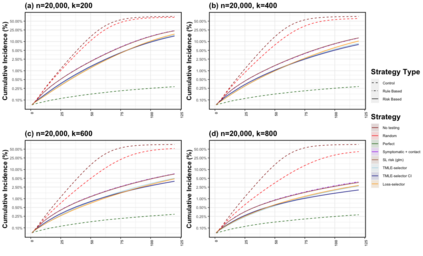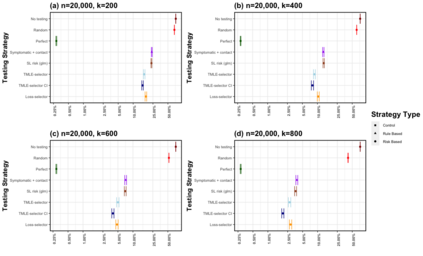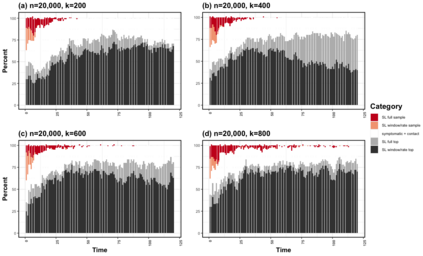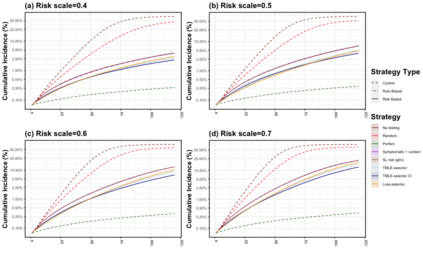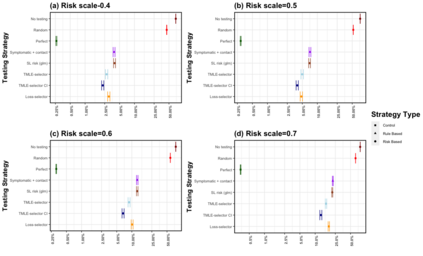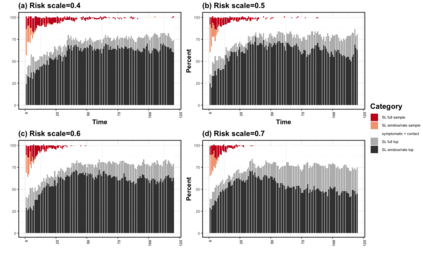Strategic test allocation plays a major role in the control of both emerging and existing pandemics (e.g., COVID-19, HIV). Widespread testing supports effective epidemic control by (1) reducing transmission via identifying cases, and (2) tracking outbreak dynamics to inform targeted interventions. However, infectious disease surveillance presents unique statistical challenges. For instance, the true outcome of interest - one's positive infectious status, is often a latent variable. In addition, presence of both network and temporal dependence reduces the data to a single observation. As testing entire populations regularly is neither efficient nor feasible, standard approaches to testing recommend simple rule-based testing strategies (e.g., symptom based, contact tracing), without taking into account individual risk. In this work, we study an adaptive sequential design involving n individuals over a period of {\tau} time-steps, which allows for unspecified dependence among individuals and across time. Our causal target parameter is the mean latent outcome we would have obtained after one time-step, if, starting at time t given the observed past, we had carried out a stochastic intervention that maximizes the outcome under a resource constraint. We propose an Online Super Learner for adaptive sequential surveillance that learns the optimal choice of tests strategies over time while adapting to the current state of the outbreak. Relying on a series of working models, the proposed method learns across samples, through time, or both: based on the underlying (unknown) structure in the data. We present an identification result for the latent outcome in terms of the observed data, and demonstrate the superior performance of the proposed strategy in a simulation modeling a residential university environment during the COVID-19 pandemic.
翻译:战略测试分配在控制新出现的和现有的流行病(如COVID-19、HIV)方面起着重要作用。广泛的测试支持有效的流行病控制,其方法是:(1)通过识别病例减少传播,(2)跟踪爆发动态以通报有针对性的干预措施。然而,传染病监测提出了独特的统计挑战。例如,兴趣的真正结果——一个人的正传染状况,往往是潜在的变数。此外,网络的存在和时间依赖将数据降低到一个观察点。由于定期测试整个人口既不有效也不可行,标准测试方法建议采用基于规则的简单测试战略(如症状、接触跟踪),而不考虑个人风险。在这项工作中,我们研究在一定的时段期间针对n人进行的适应性顺序设计,使个人之间和整个时间的不定期依赖性成为潜在的变量。此外,如果从以往观察到的模型开始,我们进行了一种基于规则的质疑性干预,从而在资源制约下将结果最大化。我们建议采用在线超级学习者顺序设计,在不断调整的周期性测试中,通过最佳的周期性测测测测测方法,在目前测测测测测的周期期间,通过测测测测测测测测的周期性结果,通过测测测的周期测测测测测测测测测测的周期,通过数据测的周期测测测测的周期测的周期测测测测测测测测测测测测测测的周期结果。

